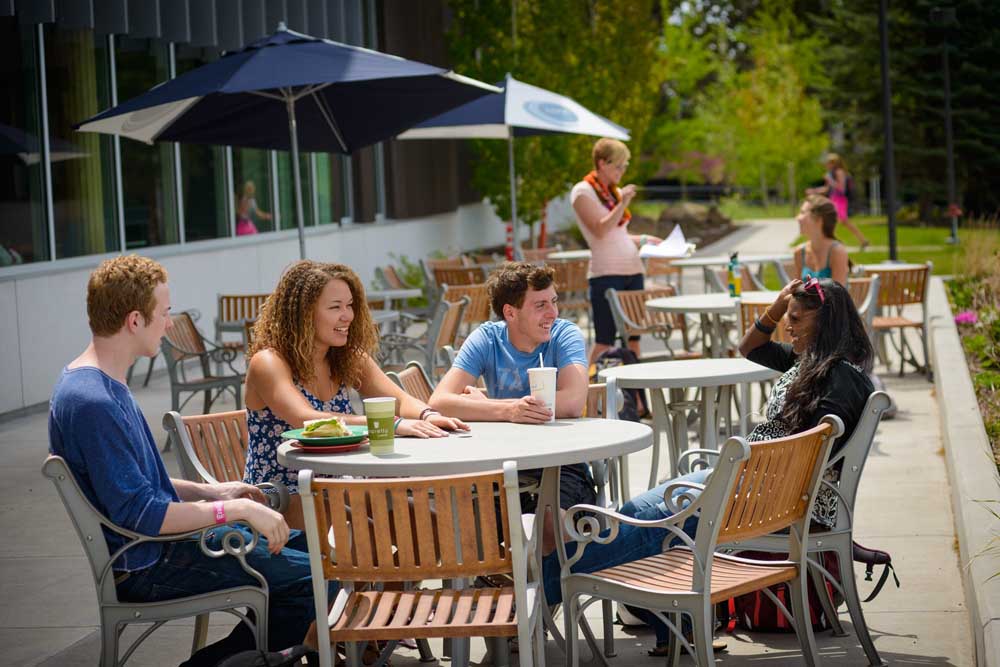Sponsored Content
An Oregon Promise for high school seniors
Published 12:00 am Sunday, May 1, 2022

- June 1 is the Oregon Promise deadline for the 2022-23 academic year.
An education at Central Oregon Community College (COCC) is more attainable than ever for new high school grads and GED recipients thanks to recent changes to the state’s Oregon Promise grant, which has a deadline of June 1. Oregon Promise was created by the Oregon Legislature to provide the financial means for more high school graduates to attend post-secondary education, with an emphasis on community colleges as a starting point.
The equity-focused updates to the state’s community college grant program include a lowering of the GPA requirement to 2.0 and eliminating the $50 per term copay. Other changes increase the minimum award amount from $1,000 to $2,000 for full-time, full-year students and remove the “First-Year Experience” requisite programming for new award recipients.
Applicants who meet the criteria and follow the requirements — such as enrolling in a minimum of six credits and maintaining continuous enrollment — receive a mostly free education at COCC. Grant awards range from $2,000 to $4,128 per year, with totals depending on remaining financial need after state and federal grants are accepted. Presently, some 570 students are utilizing Oregon Promise funding to follow their career ambitions.
Daniel Lempke is among them. “Without the Oregon Promise money, I would not be able to go to college,” said the Certified Nursing Assistant student, who hails from Astoria. For Lempke, the decision to relocate to Bend for his education initially centered on a different academic track. “The reason I choose COCC was for the culinary program — I did a lot of research about COCC. I was in the Baking and Pastry Program.”
But like many students — approximately 80% — his major changed upon discovering the many degree and certificate options at COCC, and he soon decided, with more research, to go a different direction. He ultimately plans to apply to the Nursing program. “I think what sets the CNA program apart here is that I can transfer to a four-year university or college. I also like the real-world experience we get with our clinicals — it gives me a sense of what it’s like working in a hospital.” The Oregon Promise covers all but $1,200 each term of his tuition.
“We are excited about many of the changes to the program, and Oregon Promise continues to be a significant support system for student access to higher education,” said Breana Sylwester, director of financial aid at COCC. “The increased funding and removal of the $50 copay will go a long way for our students.”
Although First-Year Experience components are no longer required for grant renewal, Sylwester said that she and other COCC staff and faculty will actively encourage students to participate in these helpful, established programs, such as Bobcat Orientation (akin to a confidence-boosting dress rehearsal for first term) and a College Success course. The three-credit course focuses on student empowerment, covering things like individual learning styles and time management. These opportunities provide academic tools, resources and an overall informed approach to getting the most out of COCC.
Soon after the Oregon Promise first went into effect in 2015, Sylwester pointed out, COCC’s First-Year programming achieved notable results. Some 88 percent of Oregon Promise students who completed the First-Year programming persisted in their education, while just two years prior, and without this requirement, a similar group of students — in both age and credit commitment —managed only a 76 percent completion rate.
In addition to applying for the Oregon Promise grant by June 1, prospective students need to complete either the Free Application for Federal Student Aid (FAFSA) or the Oregon Student Aid Application (ORSAA) by the same date. Dual-enrolled students with Oregon State University-Cascades are eligible for Oregon Promise, too. Students who need assistance with these processes can contact COCC’s Financial Aid office for help.
Once the grant is allocated, students need to maintain continuous enrollment. “If they stop out, even for one quarter, then they lose the grant,” explained Alicia Moore, vice president of student affairs. “The big thing is they have to attend within six months of graduating from high school. If they graduate in June and wait until winter quarter, it’s too late.”
Visit cocc.edu/financial-aid to learn more.








